Moin, guten Tag und hallo!
Today is the first day back in the US since I left for Germany in early January for my internship in northern Germany, in Lübeck to be exact. Unlike most CISLA students, I actually did my internship before my semester abroad in Tübingen, Germany because the semester scheduling works differently over there. As a result of that, I did not have the safety of first experiencing the country from a student’s perspective to gain some primary exposure to life in a foreign country with different cultural norms, a completely novel way of life and, of course, German as the primary mode of communication. This ended up being the best thing for me, however, because I got to develop my own way of life in this new environment without being burdened by extra school work and my internship excelled at fostering language learning. Through this, I adjusted quickly to my new life and thrived through the new opportunities provided to me, both within my internship and in my free time.
For my CISLA internship, I worked at a local middle / high school (normal for the German school system) in Lübeck in their German as a Second Language classrooms as a teacher’s assistant. These classes were separate from the rest of the school and were the home base for migrants of all ages and abilities, both academically and linguistically. Realizing that simply putting the new students into the regular classes would likely result in overly stressful situations and very limited success due to the language barrier, the school established these classrooms so that the migrants could learn German while simultaneously continuing their studies, but entirely in German. How this continuation looked, however, varied drastically between students because while some were busy learning geometry and algebra, others were learning to write for the first time in their lives, never having even learned in their mother tongue(s). This, combined with the wide age range of the two classes (between 10 and 16; the classes were divided strictly by age, not German proficiency) made it impossible to simply take pre-established methodologies and blindly utilize them for the students – I had to learn how to be incredibly flexible in my approaches constantly. Through this, I learned the true definition of individual differences, in that methods only succeed for a small number of students while the rest require other approaches. As a teacher’s assistant, I was extremely fortunate to learn this initially from my bosses, the actual classroom teachers Simone and Anna, as well as practice it on a daily basis by forming close bonds with my students. Even my German grew exponentially while working with them as they taught me new vocabulary and I truly had to master certain aspects of the language and grammar just to explain it to them. In short, I dramatically improved my own language abilities and really learned what it means to be a teacher in a diverse environment.
Most of the time, I was working with the students in their structured classes, helping however I could. This meant that I would go between students and go over concepts with them, run them through exercises, or even just correcting their work and explaining it to them. Not every day was like this though, since my entire internship was defined through flexibility. The school appreciated me as a teacher’s assistant as well as being American and often times my English expertise was utilized in the English courses for that class, after school help classes for migrants who have progressed into the regular classes, or in the regular English classes as a special guest. Yet even being in the singular English environment, it was still very German and I spoke as much German as English, if not more German. Towards the end of my internship, they had a project week with featured making cutouts of the famous Holstentor, featured below, and even few woodworking days where the students made their own cars.
While a lot of the internship was spent intensely working with the students in varying degrees, there were plenty of other exciting and enjoyable aspects of working with the students and living in Lübeck. The class loved to take field trips that were relevant to the students, one of the most notable being a trip to the Holstentor, a large archway that iconically captures the historical aspect of Lübeck.
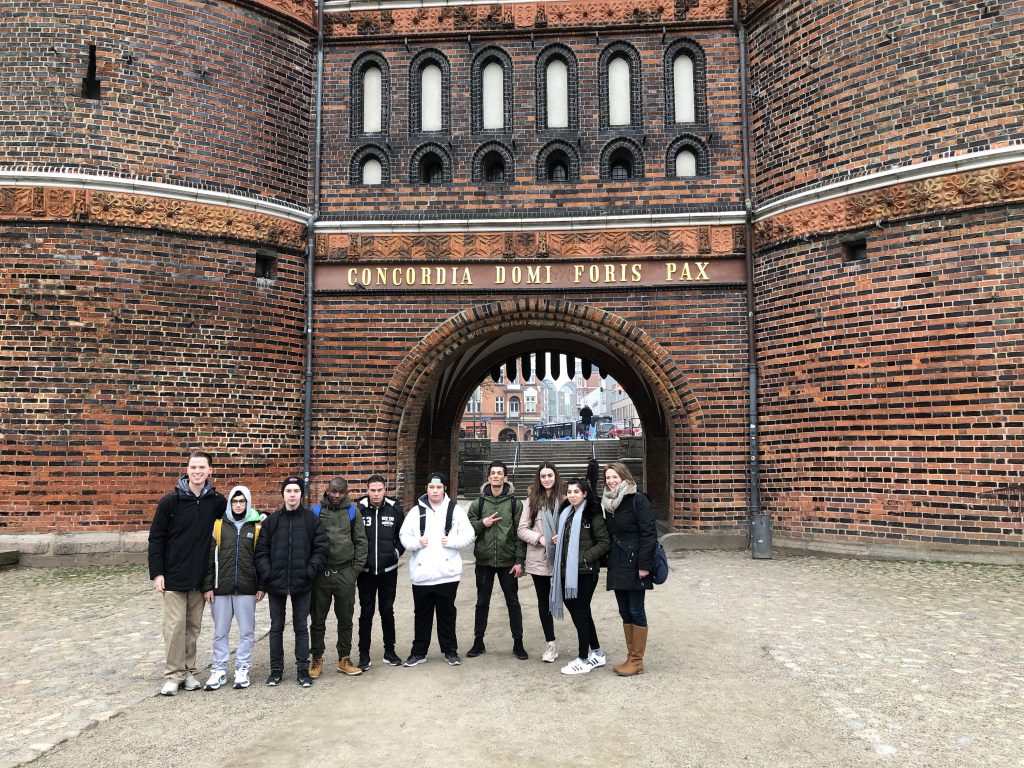
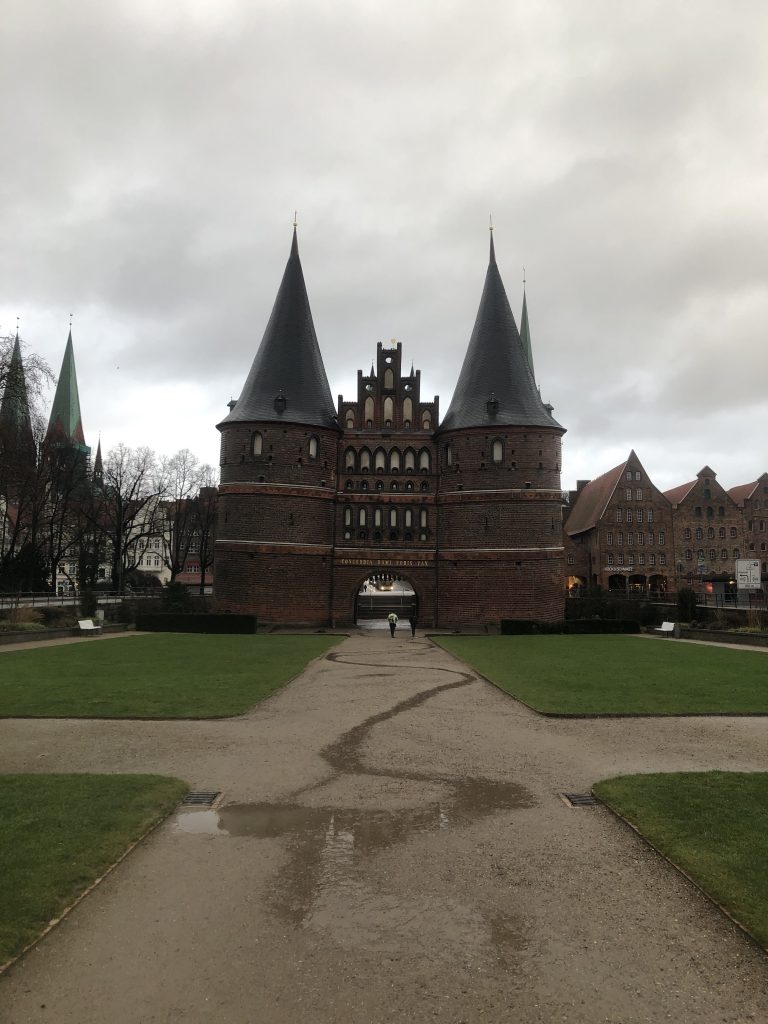
Being that we were in the middle of the winter, the class enthusiastically went on an ice skating field trip towards the end of my internship. The market place in the center of town right next to the town hall was converted into a mini carnival with a carousel, various food stalls, and a giant ice rink right in the center. I was fortunate to even attend its opening night in the middle of January with a spectacular figure skating performance by a female group preceded the inaugural skating night!
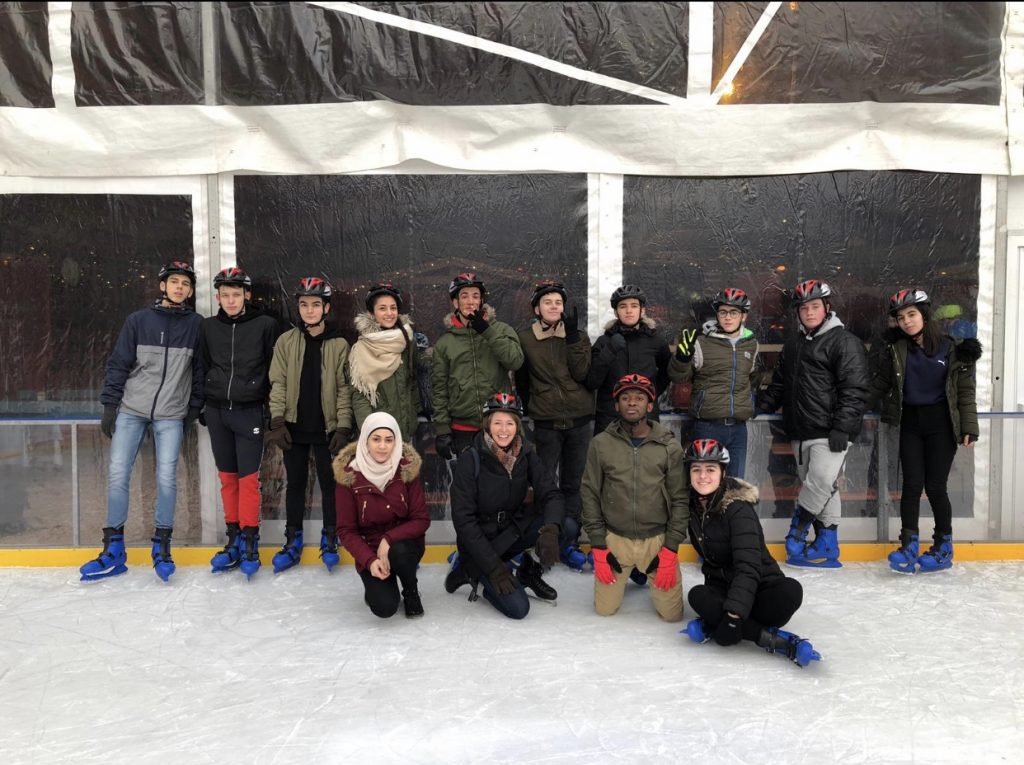
Also because I was there in the winter, sunlight was sparse and cherished. Towards the beginning of my internship, I often arrived at the school before the sun had risen and biked home a couple of hours before dusk around 2pm. Yet despite that, I witnessed some of the most brilliant sunrises and sunsets that made the sky truly explode with colors.
Of course, along with the winter came the occasional snowfall. However, since we were right next to the Baltic Sea, the city got very little snow throughout the entire winter and I only experienced one actual snow storm the entire 2 months of my internship throughout February. Despite the already less than usual amount of snow that Lübeck experiences, even my coworkers (other teachers in the school) remarked that this year featured especially slow rates. That one time it snowed, I really had to rethink biking to work and got creative between taking a bus and just walking, so I actually was glad that it only happened once (despite typically being an avid snow fan). It did make for some picturesque scenes and views, especially when one of my classes went out to clean the school courtyard of trash (every class does it twice a week once every month, it helps keep the environment looking clean and helps to teach these responsibilities to students in a practical manner).
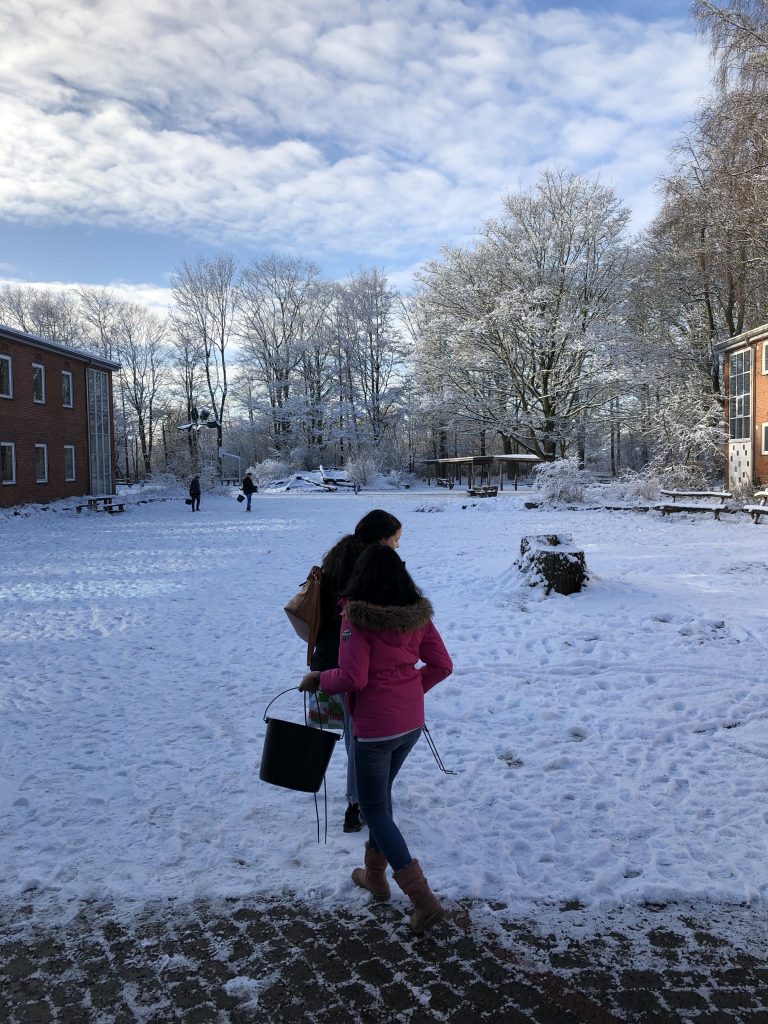
After school ended, and once the sun starting to stay out a little later, I often frequented the inner city of Lübeck and was entranced by its medieval architecture married with modern buildings that created an interesting combination. Lübeck was made an independent city under the Holy Roman Empire and flourished around this time due to it being the central hub of a collection of merchants that formed the Hanse, an international trading organization whose meetings were conducted in Lübeck. This led to extraordinary wealth for the lucky merchants and that reflected heavily on the architecture with several churches and many stone and brick buildings which, at the time, were extremely expensive. During the Second World War, much of the city was bombed and was later rebuilt. While come landmarks were simply restored to their previous style, much of the city was erected with modern architectural styles that offer a rich contrast to the older buildings and landmarks.
Naturally, with such a beautiful city I had to see what it looked like from an aerial view. One of the churches of the city offered such a that amazingly captured both the downtown and the surrounding area. These photos feature a look into the area right around the Holstentor with the market place with the ice rink slightly visible in the bottom of the second picture and the Holstentor itself in the third.
I managed to find some time for traveling while at my internship despite my schedule. I took two afternoons to check out the surrounding area by visiting the Baltic Sea (I know, winter is not really the ideal time for a beach day, but I did not really have a choice) and another to see Hamburg briefly, only 45 minutes away. Additionally, I took one of my last weekends to visit my high school friend studying abroad in Amsterdam and fell in love with that city as well. Here are some more photos, one from each excursion that captured my experiences there.
Finally, towards the end of the internship, our school had a day of professional development where we spent the day developing methods for bringing democratic values into our pedagogy and into classroom lessons. Many of the students in the classroom had migration backgrounds and came from countries that did not value democracy in the same ways, meaning that the students would need to learn these lessons (such as gender equality) in their lessons and in class. We spent the day developing these ideas and creating a template for the class to use as guidelines in developing the lessons. This meta-pedagogy highlighted the important lessons that I had learned throughout the internship and helped solidify their utilities. More importantly, I was able to reflect on the meaning of each lesson to ensure that the students were getting the most value out of each class while also highlighting how each lesson is in some way political and in no way objective. This made me appreciate even more the work that the teachers were doing for their class and helped prepare me even further for my own in the future. After the internship ended, I found that I gained a many skills necessary for German language pedagogy, learned how to become extremely flexible within the classroom and between students, and cemented my interest in becoming a German teacher in the future. I have CISLA to think for this incredible and unique experience and I cannot wait to apply the lessons / skills from this internship to my own students in the future.
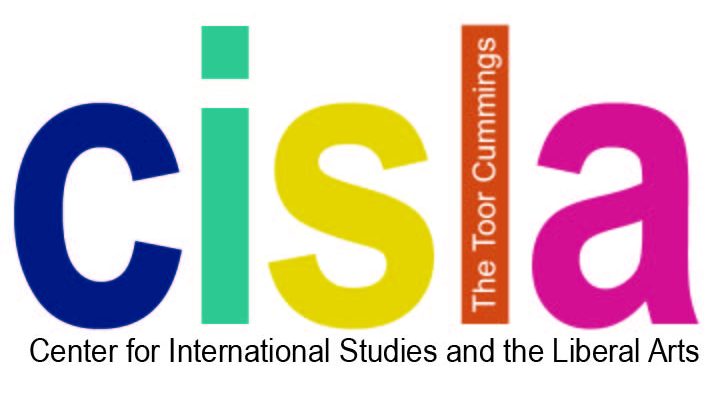
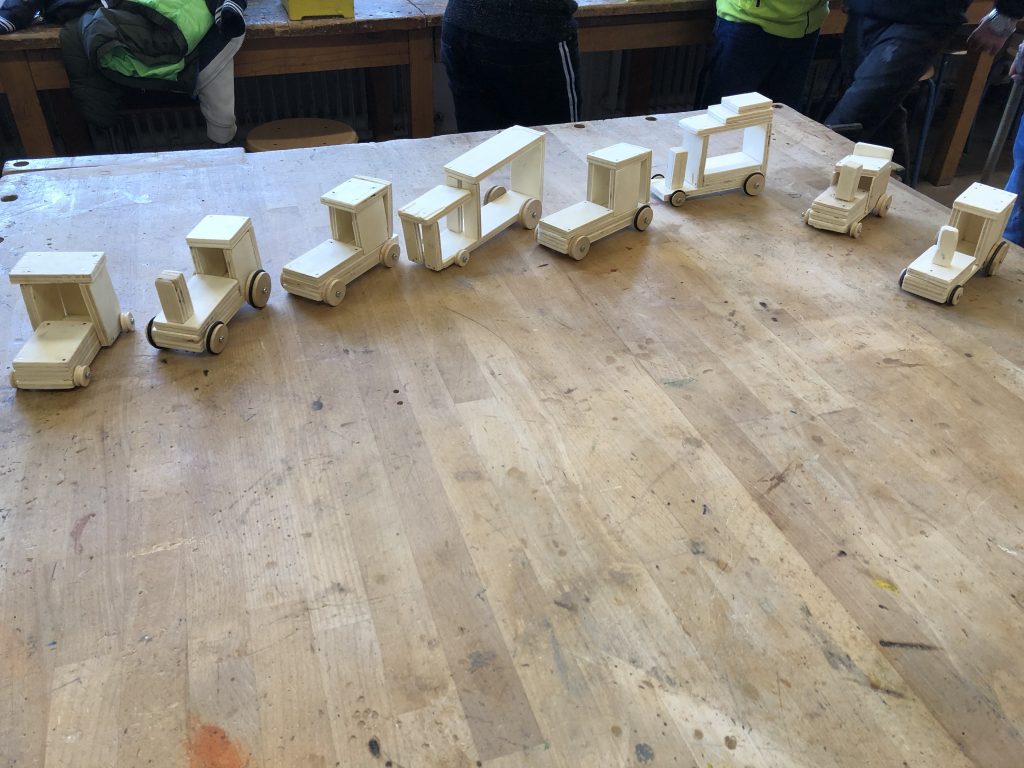
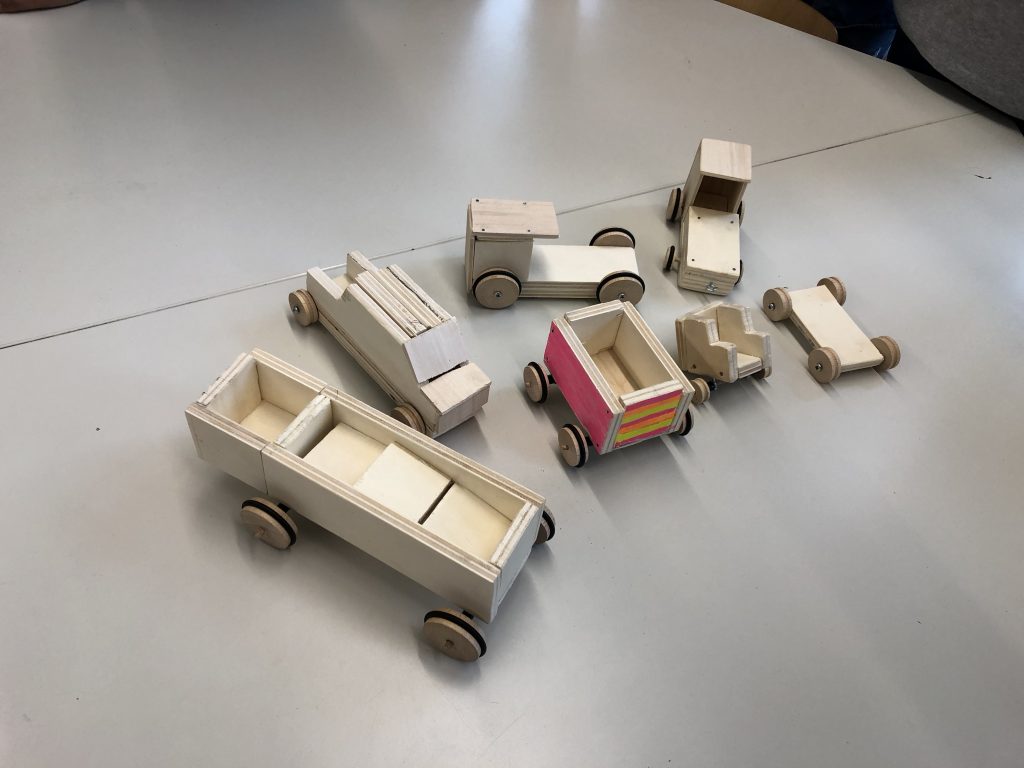
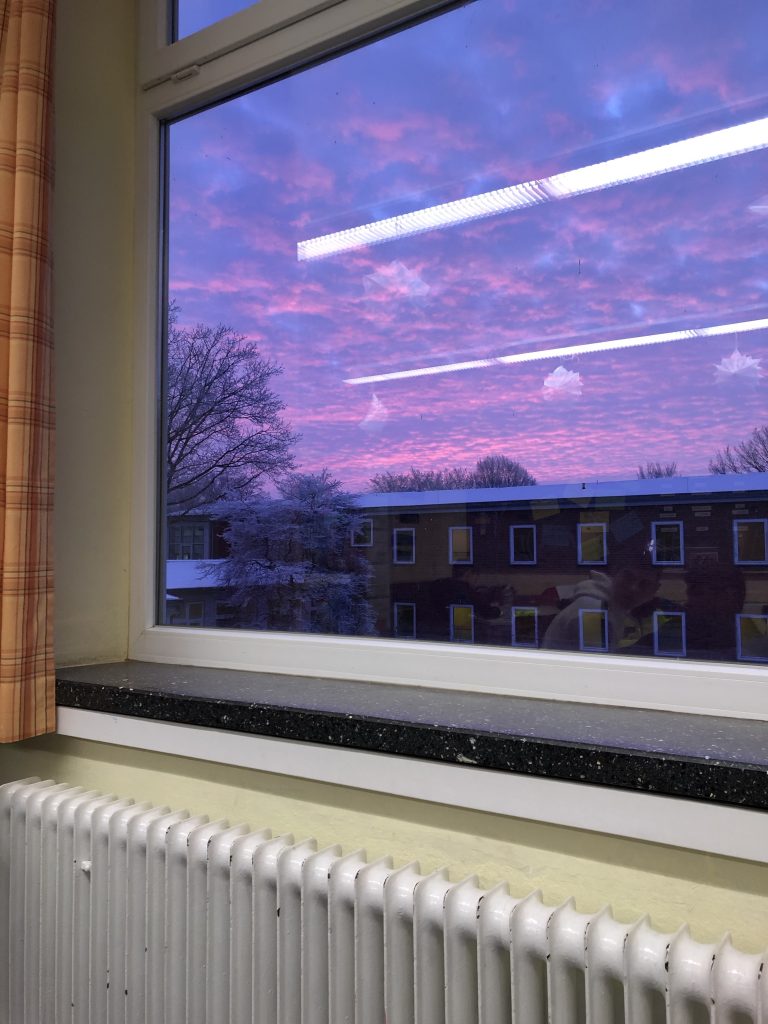
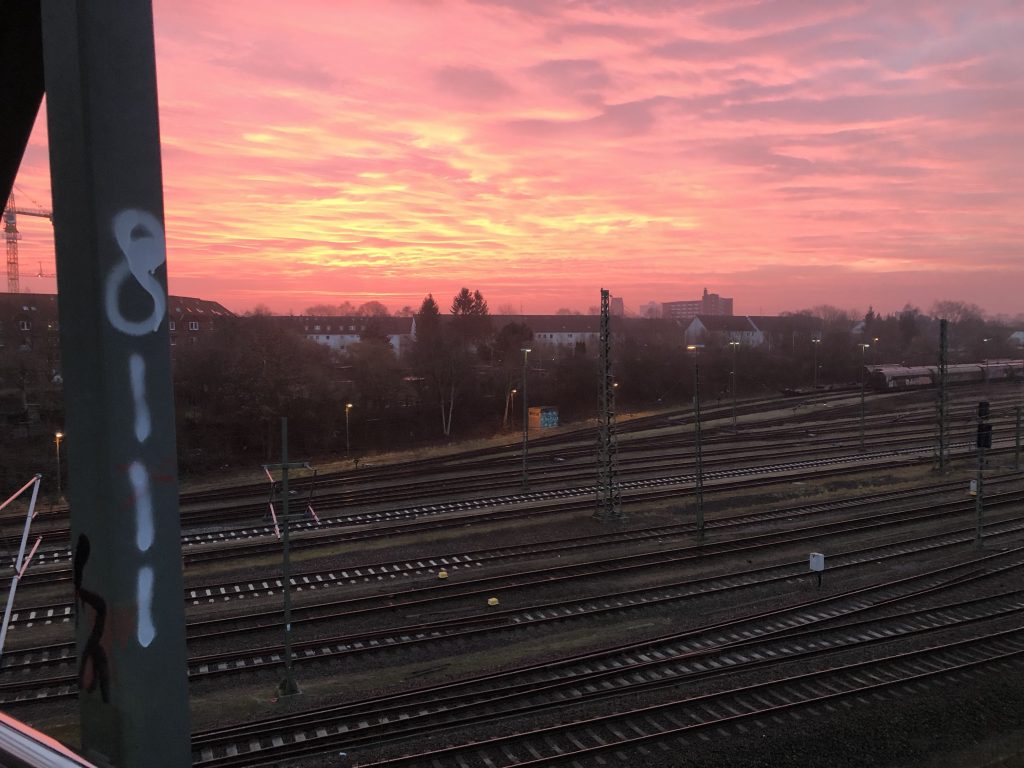
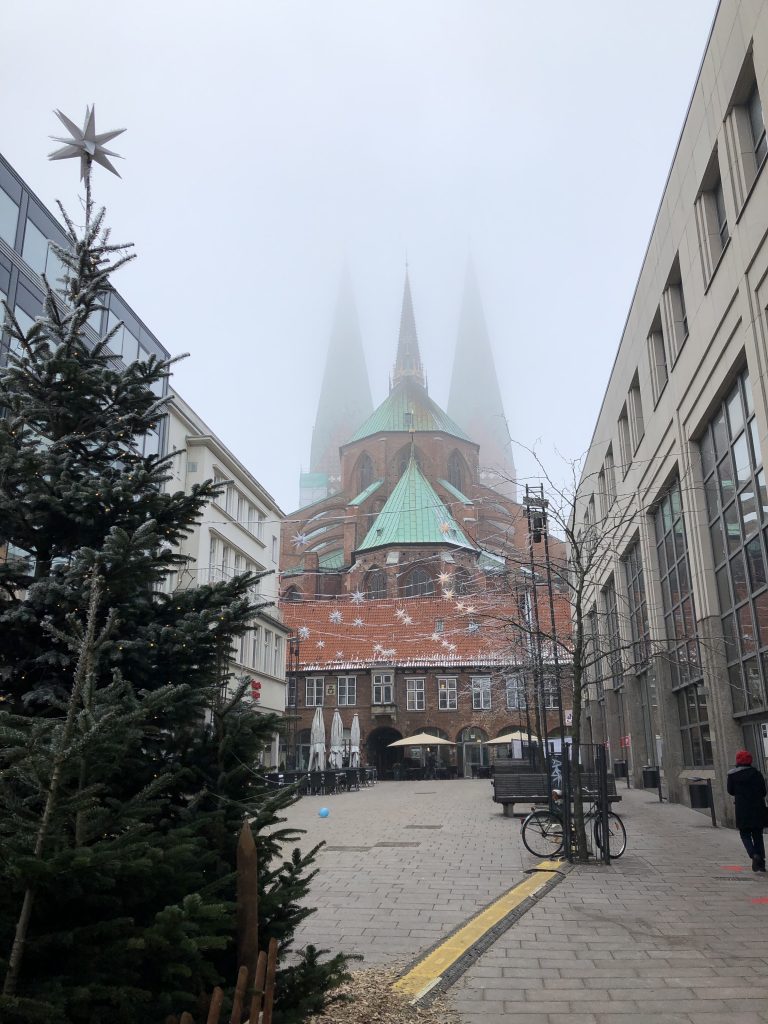
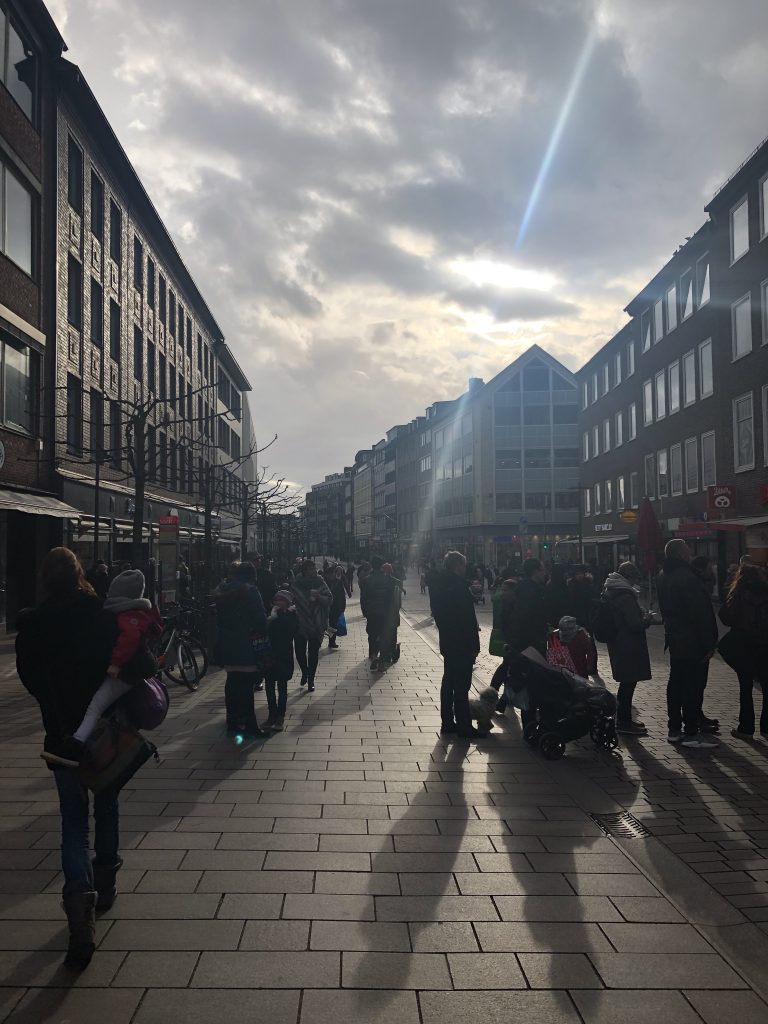
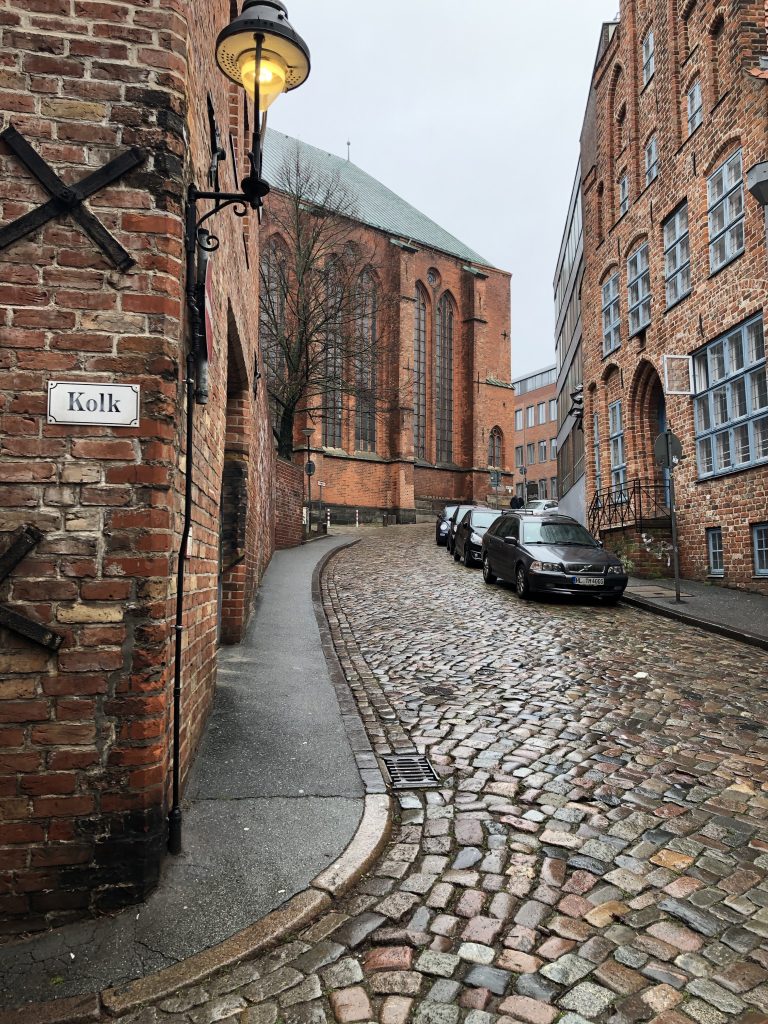
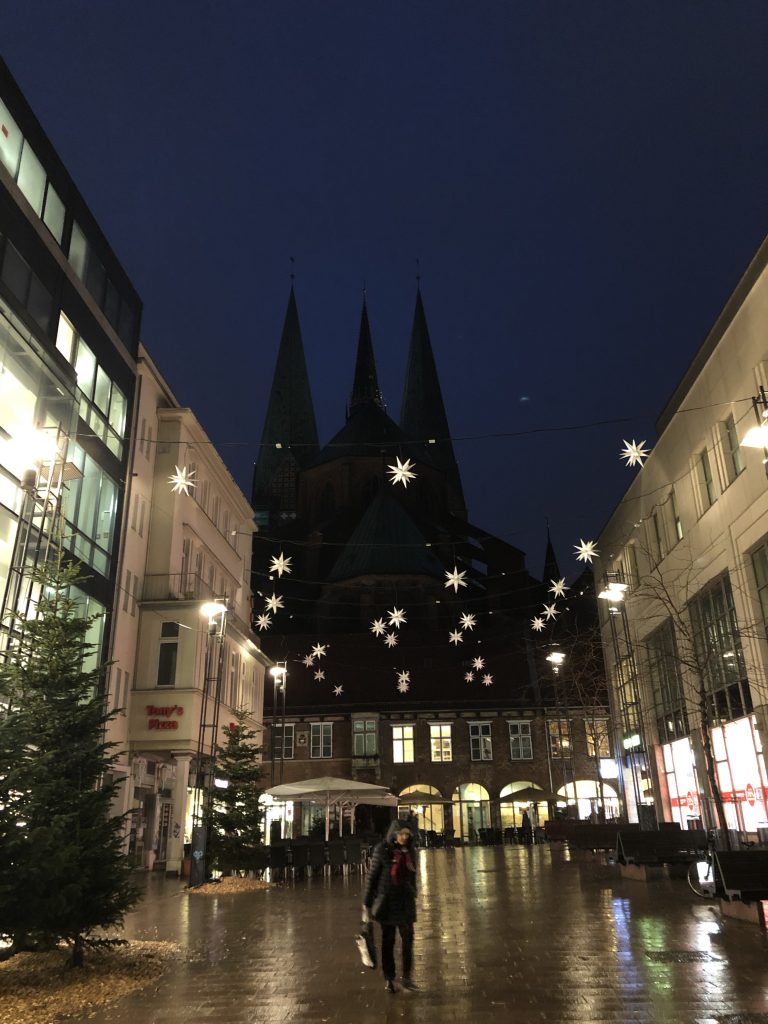
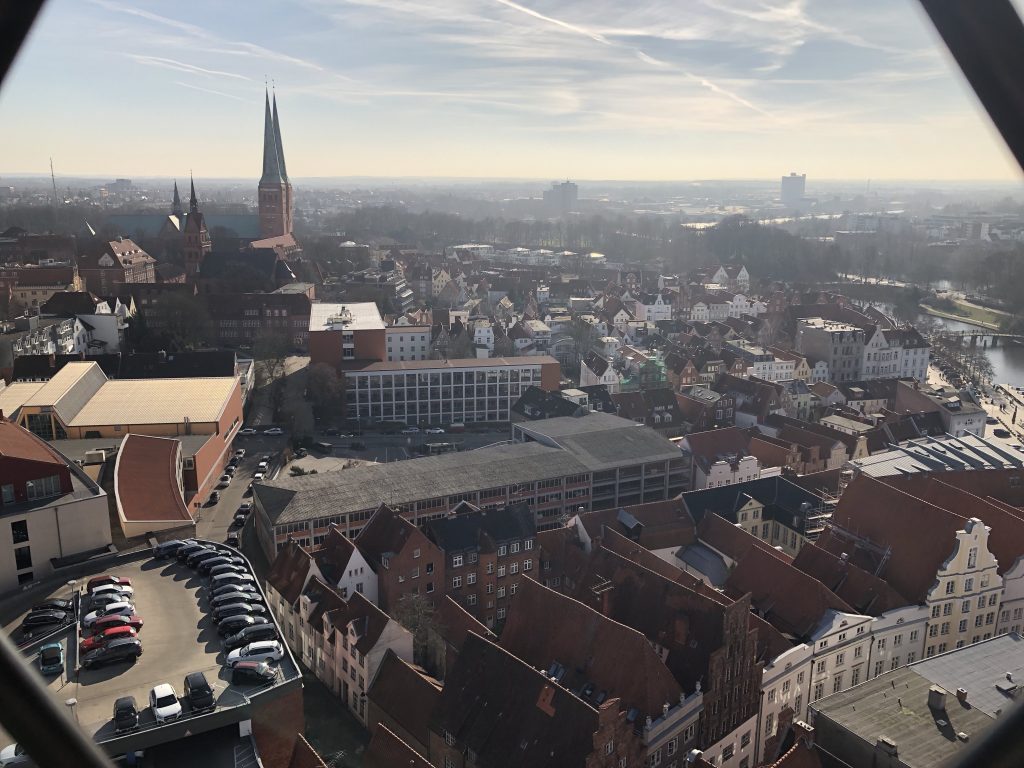
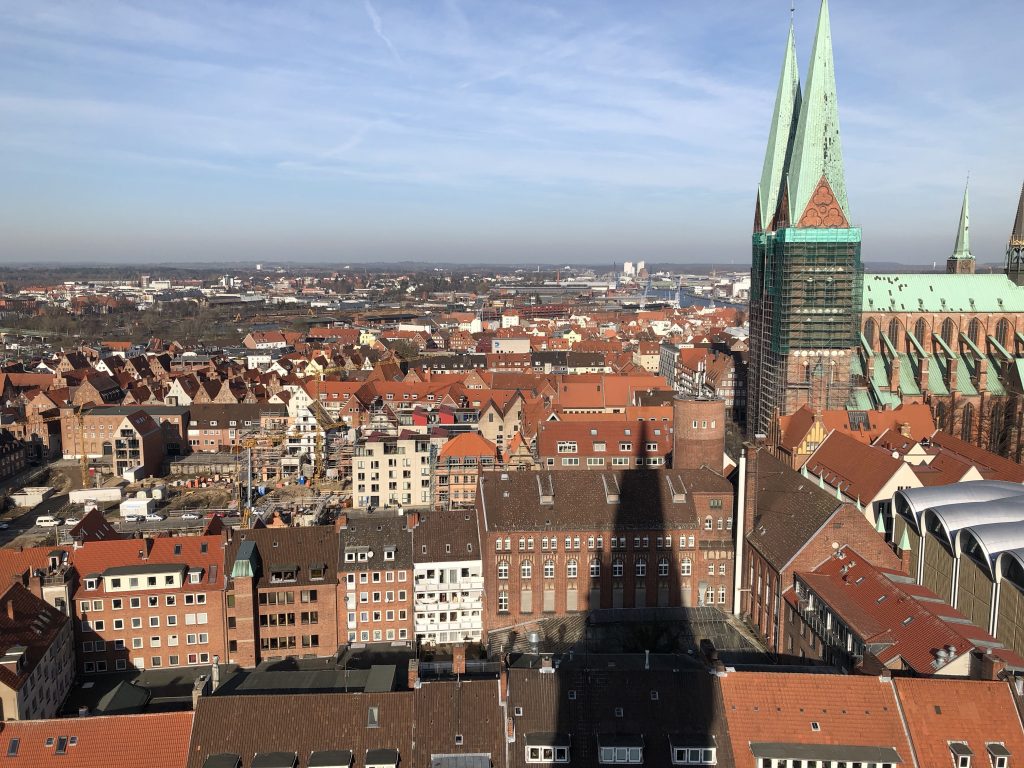
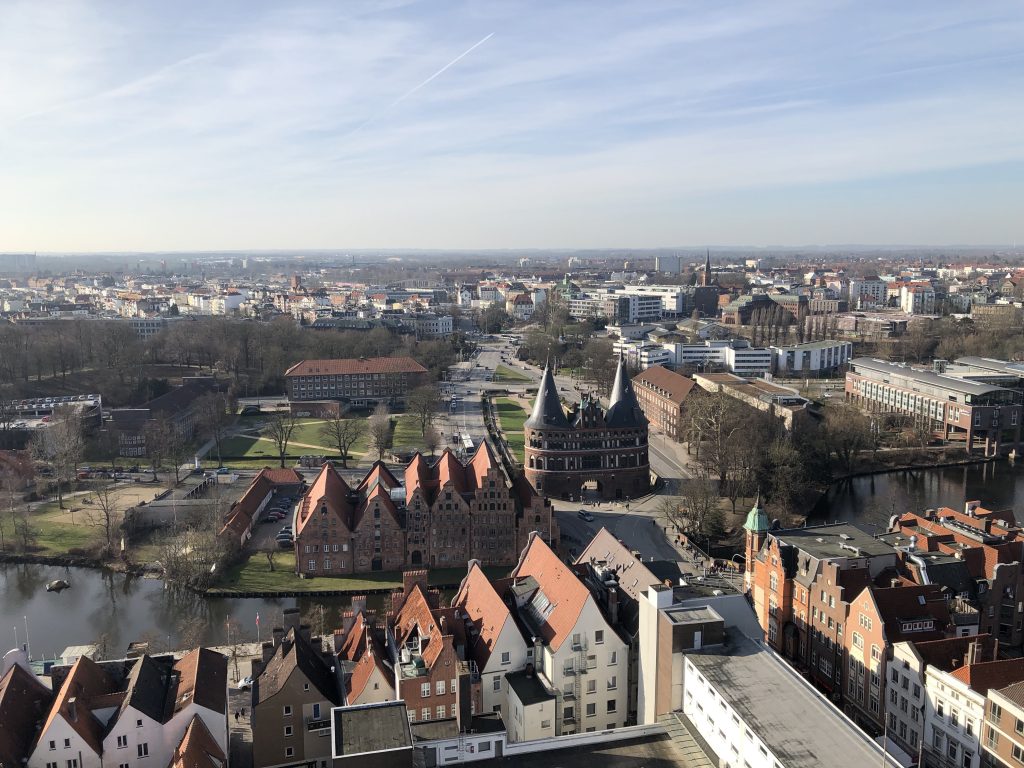
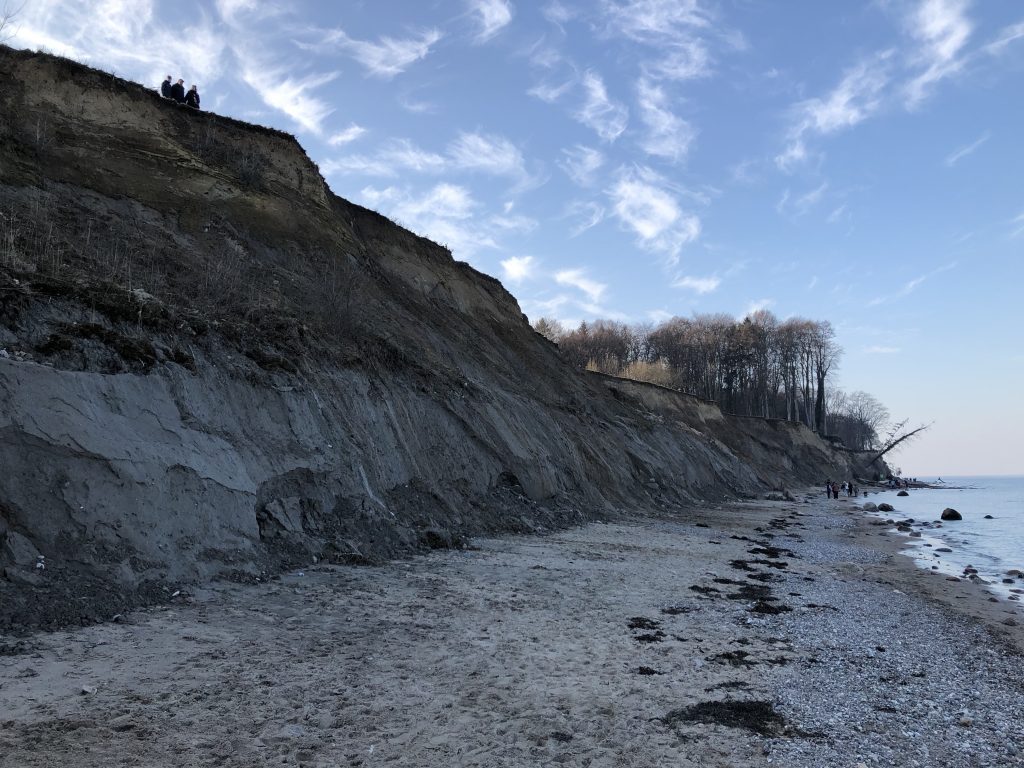
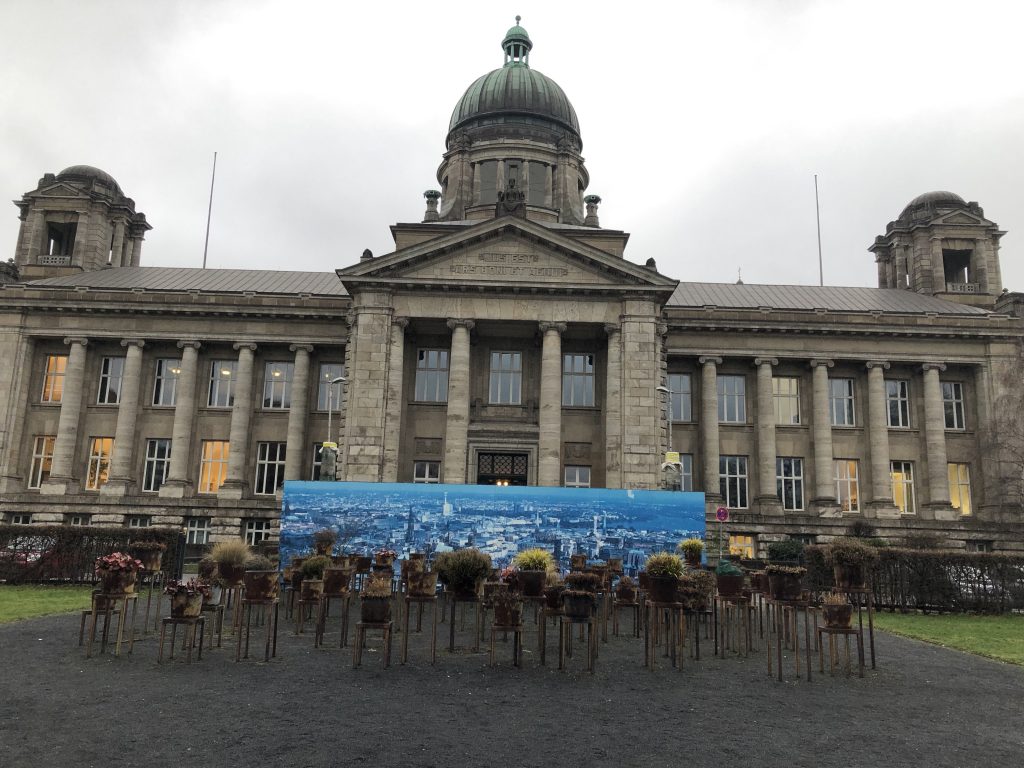
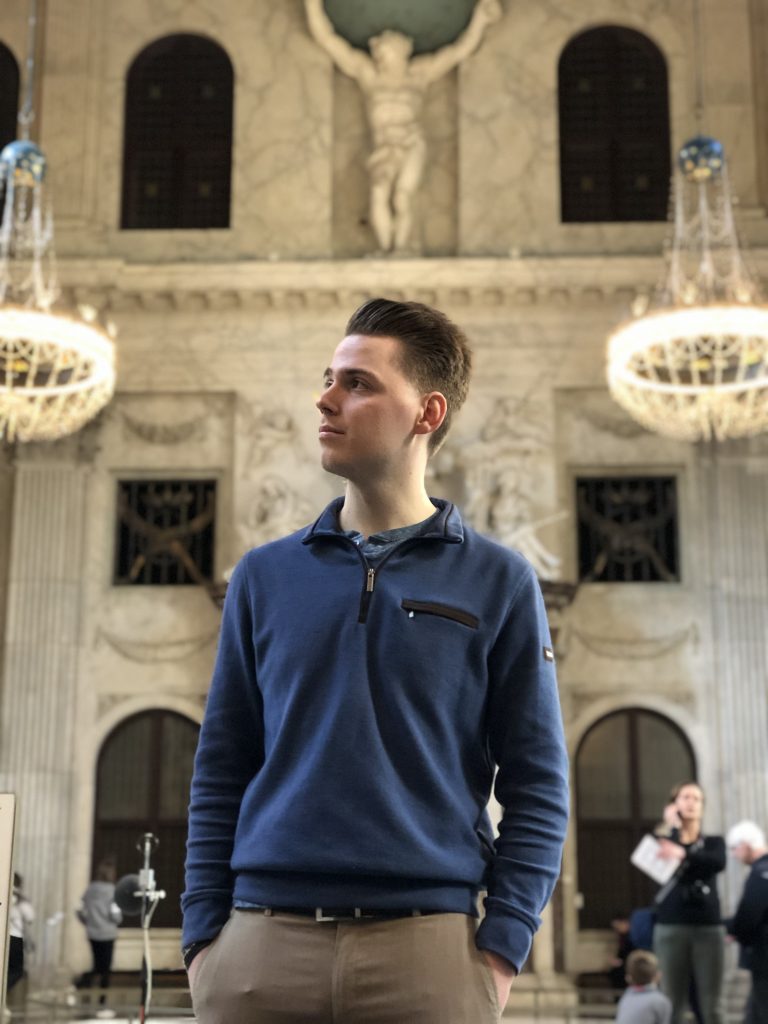
1 Comment
Add Yours →Hi Scott, It sounds as if you had a wonderful rich experience over a good long period of time. Your German was already great, but it must be terrific by now. I just love hearing how everyone has changed and grown academically, personally, intellectually and inter-culturally.
It will be great to see you back on campus. Mary